Let's come together for a 3rd Summit!
After the first and hugely successful Summit 2019 in Berlin and our first event outside of Germany, the 10-year anniversary Summit in Amsterdam last year, we are extremely pleased to announce our 3rd Summit! 🎉
Join us for two days of gaining knowledge about web accessibility, exchanging experiences and meeting like-minded enthusiasts from all over Europe and beyond: May 24th-25th, 2025, in Würzburg, Germany!
Again, the summit will be jointly run by multiple web accessibility and inclusive design related meetups from all over Europe. And again, it will feature a full-day BarCamp and a second day with community run workshops.
We are currently in the very early stages of planning, and we ask you to give us some time before providing you with further details. In any case, mark the weekend on your calendar and plan for sufficient time – Würzburg is a beautiful city to visit!
How do I benefit?
As an accessibility enthusiast, you will meet a lot of like-minded people from various disciplines and with all sorts of skill level. You will be able to share your experiences, broaden your horizon and make new friends.
As a meetup or event organiser, you will get new impulses for your events, put them into a bigger context and just have a lot of fun with your usual attendees who will hopefully join you to the Summit. Take it as a super-social excursion that takes you out of your usual boundaries. 😉
Organising? Join in!
If you're organising an accessibility meetup, inclusive design related event or anything similar and want to get involved with the Summit, please get in touch. We hope to be able to mobilise many accessibility enthusiasts from Germany, the Netherlands and many other countries. We'll try to get in touch with as many groups and meetups as we get to know of, but you're welcome to be faster than we are. You don't necessarily have to take an active role but we'd still appreciate your input.
BarCamp + Workshops
We run the summit as a 2-day event:
- Day 1 is all about conversation and sharing experiences. BarCamp-style sessions mixed with a handful of pre-planned presentations for all attendees, pretty much like we had at the Accessibility Club Summit 2024 in Amsterdam.
- Day 2 is for learning, expanding our knowledge and putting things into practise. Visit one of several workshops about developing and designing accessible websites and digital content, run by community members like yourself.
BarCamp Sessions
In addition to the pre-planned presentations, there will be further parallel sessions, which will be jointly decided on the morning of the event in the style of a BarCamp. Each participant can propose a session — it does not have to be a prepared presentation. Just bring your own topic! It can be a discussion round, an exchange of experiences, or you are welcome to show what you have been working on recently. The audience will decide together which topics will become a session.
Pre-planned presentations
For the BarCamp day, we'll use a hybrid schedule style with both spontaneous sessions and pre-planned presentations. To shape the pre-planned part of the programme, we are currently running an anonymous Call for Presentations. A jury of dedicated volunteers from the Accessibility Club community will be selecting a set number of presentations from the submissions to create an engaging core programme for the Summit. If you'd like to contribute, check out the Call for Presentavtions and submit your idea!
Captions & Live Stream
The pre-planned presentations will be supported by human-made live captions that can be read on site on a monitor and on private devices via an internet connection (e.g. on a smartphone).
In addition, the pre-planned presentations will be recorded on video and published after the event. The presentations will also be streamed live during the event if the technology does not let us down. All ticket holders will be sent the access data for the live stream in a timely manner to the e-mail addresses stored in their tickets.
Fully hybrid
For the first time in Accessibility Club's history, we're trying something new at this year's Summit. Thanks to the excellent technical infrastructure in all the lecture halls we'll be using at THWS, we're aiming to open all BarCamp sessions and workshops for fully hybrid participation. This means we'll provide a dedicated Zoom call for each room, running throughout the day, enabling not just passive listening but real, interactive remote participation. We also plan to record these sessions so they can be revisited later.
We're fully aware that this adds significant complexity to the event and that, as with any first attempt, some things may not go perfectly. However, we're confident that with your support, we can make this a great experience. We kindly ask for your patience if things don't run entirely smoothly—and we'd love to hear your feedback afterwards on how well it worked.
The access details for the Zoom calls will be communicated to all ticket holders in good time via email.
Call for Presentations
Our Call for Presentations has now closed. We would like to thank everyone who submitted their ideas! The next step is the jury process, where a group of dedicated community members will carefully review all submissions to curate an inspiring line-up for the Summit.
The selected presentations will form a dedicated track during the BarCamp day, creating a strong core programme for the event. These presentations will be live captioned and live streamed to ensure accessibility and reach.
We are excited to see the diversity of ideas and perspectives that were submitted. Our CfP was completely anonymous — we were not looking for big names, but for great ideas! We especially encouraged new voices and those from underrepresented groups to share their perspectives on accessibility in design, development, or community work.
Even if your proposal does not make it to the jury’s shortlist, you are still welcome to bring your idea to the BarCamp day and present it spontaneously as a session.
Call for Workshops
The Summit isn’t just about listening — it’s about doing! If you want to teach, guide, or collaborate hands-on with others, we invite you to propose a workshop. Submissions are open until 31 March 2025, so bring your ideas to life and help make accessibility more practical for everyone. The selected workshops will take place on Sunday, 25 May 2025 at the THWS, complementing the BarCamp day with hands-on sessions.
As a workshop host, you will receive 80% of the participation fees (€ 25 for half-day and € 50 for full-day workshops), with the remaining 20% supporting the overall event organisation. Please note that, as a non-profit event, we are unable to cover travel or accommodation costs. However, we will provide the venue and manage participant registration.
We particularly encourage newcomers, people with disabilities, and members of marginalised groups to submit their workshop ideas. Your workshop should focus on teaching and implementing accessibility topics; commercial promotions are not permitted. All accepted workshops will be published on our website.
Schedule
| Time | Agenda item |
|---|---|
| - | Accessibility 101This session is explicitly aimed at all those who are new to accessibility and would like to familiarise themselves with the most basic concepts and terms of accessibility before the actual event. The presenters will guide you through the key principles and ensure that you have a better understanding of some of the day's topics. The session is designed to give you more confidence and understanding of the broad field of accessibility and allow for an initial exchange with like-minded enthusiasts. Performed by |
| - | Doors open |
| - | Opening Performed by |
| - | Session planning |
| - | A "Game"-Changing Approach to Accessibility EducationWhile disability simulations aim to build understanding, we are flipping the script. Instead of simulating disabilities, we simulate the barriers themselves. This presentation introduces an educational game in which assistive and standard technologies swap roles. Imagine a world where your mouse doesn’t work properly — just your keyboard. Where text plays hide-and-seek, but a screen reader always finds it. Welcome to a digital escape game set in a unique world where assistive and standard technologies swap roles. In this presentation, Olivia takes you behind the scenes of this game, designed to help you experience barriers firsthand. Discover why simulating disabilities may not always be the best approach to bridging the empathy gap. So, what’s the alternative? Instead of simulating disabilities, Olivia simulates barriers. It doesn’t ask you to pretend to be someone you’re not; it asks you to step into a world that wasn’t designed for you. It isn’t just about empathy — it’s about education, awareness, and those "aha" moments that change how we see the world. Find out how gamification transforms learning into an adventure everyone wants to join. Because when accessibility is fun, it reaches more people — and that’s a win for everyone! Performed by |
| - | WCAG and Me: How accessibility guidelines support my ADHD brainKnowing she has ADHD has been like having a secret cheat code for Caitlin. It’s helped her navigate life. When she dove into WCAG, she discovered how much these guidelines support her ADHD brain. In this session, she shares her insights and shows how WCAG benefits more people than you might realize. Caitlin has known she has ADHD since she was 14. Growing up with that knowledge has been like having a secret cheat code. She has learned how to navigate daily life in a way that works for her. She doesn’t feel limited or impaired, yet ADHD is officially considered a disability. As she built her career as an Accessibility Consultant, she frequently encountered discussions about accessibility for cognitive disabilities, including ADHD. This made her wonder: does she really not experience limitations? So, in true ADHD fashion, she went to bed one night, couldn’t stop thinking about it, grabbed her laptop, and dove into WCAG—analyzing every success criterion to see how it impacts her. Spoiler alert: way more than you’d expect! In this session, Caitlin shares her insights to inspire others and show that WCAG benefits far more people than we often realize. Performed by |
| - | A gang of A11ys — how to grassroot accessibility even if there is no gardenerThis presentation outlines how Leonie and her team grew accessibility at their company from the bottom up — even without allocated resources or C-level backing. She shares examples of how to network, promote the topic, and build a strong network of allies to push accessibility forward and implement lasting change. Despite the EAA law taking effect soon, not all companies and upper management perceive the same level of urgency and importance for this topic as others might. In this presentation, Leonie tells the story of her company, which faced the same issue — and how a small group of enthusiasts used their passion to build a company-wide network to get things moving, even without dedicated resources. By ramping up knowledge wherever possible, building comprehensive networks, finding the right kind of allies, tailoring talks and workshops to different audiences, making the topic tangible, and emotionalising abstract figures — starting "little fires everywhere" — they managed to create real momentum. Leonie also shares tips, examples, and alternative routes to offer a variety of possible actions for anyone looking to grow accessibility from the grassroots level. Performed by |
| - | Lunch break |
| - | Automatic testing of web a11y — from zero to dev focusedIn this presentation, Łukasz shares the story of his development team creating an accessibility-focused culture from a near-zero starting point. They took a particularly interesting approach by beginning with writing automated tests during several hacking Fridays. This talk is partly an inspirational story about how and when it’s best to start with such testing. The other part is a hands-on technical session based on real code taken from a dedicated repository. It features a simple React application and Playwright-based tests forming an accessibility test suite. This includes a functional client journey with keyboard-only navigation, accessibility tree snapshot creation, and a series of static code analyzers. Łukasz explains in detail the meaning and value these components provide. At the same time, the test suite’s engine is ready to copy, so attendees will be able to experiment with their own scenarios the very next day. Performed by |
| - | Accessibility in iOS apps: How to create an inclusive onboarding experience in SwiftUIThis presentation explores key lessons in accessible mobile app development with SwiftUI. Nathalie highlights the journey she and her colleagues undertook to create an inclusive onboarding experience, sharing practical insights and best practices to improve accessibility for their users. Nathalie and her colleagues have been developing a new, accessibility-focused onboarding experience for their iOS app. In this presentation, she shares key insights from their implementation, demonstrating pitfalls and best practices in designing and building an accessible SwiftUI app. SwiftUI is a declarative framework for building user interfaces for iOS. In her talk, Nathalie discusses how they leverage native components to take advantage of built-in accessibility features and which modifiers they use to make custom components more accessible. She also demonstrates how the team tests accessibility using VoiceOver and other testing tools. Additionally, she shares feedback from visually impaired users and explains how it has guided improvements to the app. This session provides valuable insights into accessibility challenges and solutions in mobile app development — specifically in SwiftUI — that can be applied in other contexts as well. Performed by |
| - | Accessible Data VisualizationIndividuals with accessibility issues are not able to access most data visualizations. This talk describes their challenges and provides several innovative solutions for providing accessible, informative, and attractive data visualizations. This entry-level talk provides a crash course in the array of considerations one must make when creating data visualization. It describes the many use cases for data visualization and the possible accessibility implications inherent in them as well as best practices and examples for ensuring attractive, informative, and accessible charts, graphs, and infographics. Performed by |
| - | Closing & relaxed endingThe organisers will conclude the day with a few closing remarks. After that, we will leave the university at our leisure. Performed by |
| - | Optional: Informal evening programmeThere is no official programme for the evening of the BarCamp day, but we very much hope that participants will get together and make plans to spend the evening somewhere in Würzburg. Let's stay in touch and keep the conversation going throughout the evening! |
| Time | Agenda item |
|---|---|
| - | Accessibility Testing and AuditingThis 1-day training event provides hands-on training in testing for accessibility. We will cover various testing methodologies including automated, manual, and use case testing and provide helpful job aids for each. We will also cover how to configure and use various types of assistive technologies and discuss how to use each during manual and use case testing. Note: This is not training about how to use assistive technologies. While we will be covering assistive technologies and will also be using them periodically, this training is not focused on testing a system for compatibility with screenreaders. This is a holistic training aimed at all facets of accessibility, which extends far beyond users of specific assistive technologies. Workshop by |
| - | AI beyond the hype: what will it truly mean for accessibility?Artificial Intelligence (AI) is both exciting and intimidating. It can see and hear better than many humans, making it a powerful tool for enhancing accessibility. However, the topic is controversial. Within the accessibility community, some view it as a solution to all problems, while others remain skeptical. In this workshop, we will present a balanced perspective on the current state of affairs:
In the second part of the workshop, we will build our own "Testing Tool" using the concepts of "Dive Coding" (no coding experience required). We will conclude with an open discussion about how AI will shape the future of accessibility. Workshop by |
| - | Intersectionality in the context of digital accessIn this workshop, we will explore the theory of "intersectionality," a concept introduced by African-American scholar Kimberlé Crenshaw. Intersectionality describes how each individual consists of multiple identity traits—such as gender, ethnicity, social class, physical and mental abilities, and many others. These traits influence not only personal experiences but also access to opportunities, privileges, and encounters with discrimination in everyday life, including the digital world. We will examine how these overlapping identities shape users' experiences on the web and how intersectional approaches can be applied in web design to create a more accessible and inclusive online environment. The goal is to develop a deeper understanding of intersectionality in digital accessibility and explore practical ways to use this knowledge to create more inclusive and user-friendly websites. Workshop by |
| - | Neurodiversity and Digital Accessibility: Creating Inclusive Web ExperienceAs of June 28, the "Barrierefreiheitsstärkungsgesetz" will come into effect in Germany, marking an important step towards improving digital accessibility. While more companies, web designers, and accessibility professionals focus on inclusive experiences, the needs of neurodivergent individuals are still often overlooked in planning. In this 3-hour session, we will explore the importance of neurodiversity in web design. Neurodiversity includes neuronormative (about 80%) and neurodivergent individuals (about 20%), such as autistic people and those with dyslexia, ADHD, and giftedness. I will focus on these conditions and what is needed to break down barriers for neurodivergent users. Practical strategies will be discussed to ensure websites are inclusive for all users, not just those with physical disabilities but also cognitive and neurological differences. By considering neurodiversity early in the design process, we can create more accessible and user-friendly digital experiences. Workshop by |
| - | Collaborative Approaches to Inclusive Web Design: Landu and Shino on Neurodiversity and IntersectionalityIn this session (following individual sessions of Landu and Shino on neurodiversity and intersectionality) we will explore how these concepts shape inclusive web design. While these prior sessions complement this collaborative workshop, you do not need to have attended them to participate. We will begin with a brief introduction to neurodiversity to ensure everyone is on the same page. The session will be highly interactive, as we will develop neurodivergent personas and discuss their needs for barrier-free web experiences. Participants can collaborate to design solutions for these personas, focusing on how websites can be more accessible for neurodivergent users. We will then share ideas and reflect on how to integrate these needs into real-world web design practices. This session offers a unique opportunity to creatively think about inclusive design. By considering diverse cognitive and neurological experiences, we can build truly accessible digital environments. Workshop by |
| - | Project Management, Change Processes for Implementing Digital Accessibility in CompaniesThe goal of this workshop is to help you find answers to questions about the ideal implementation of digital accessibility in companies. Usability and user experience (UX) affect everyone. When it comes to making applications not only functional but also enjoyable to use, people with disabilities should benefit as well. This workshop will address the question of what can be done during the development and design of applications, apps, or online content to ensure that people with disabilities not only benefit from efforts toward better usability and UX but are also actively involved in the process.
Methods: lectures and group work. Workshop by |
Performers
-
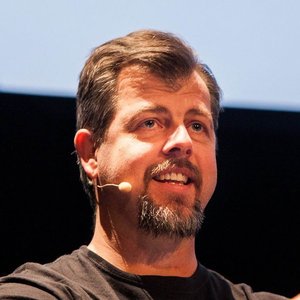
Karl Groves
Accessibility Consultant
- Internet
- https://www.karlgroves.com
- Mastodon
- @karlgroves@mastodon.social
-
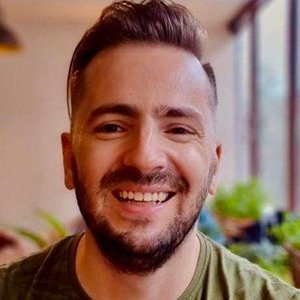
Roel Van Gils
Digital Accessibility Nerd and founder at Eleven Ways
-
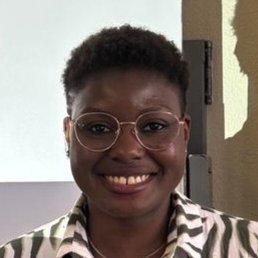
Landu Malambu
Expert in intersectionality and neurodiversity
- landu-malambu
-
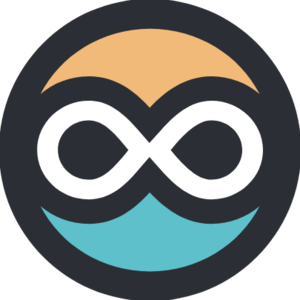
Shino Me
- Mastodon
- @ShinoMe@nrw.social
-
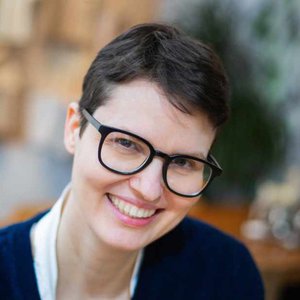
Olivia Richter
Web designer, creating websites, focus on accessibility
- Internet
- https://ideenquelle-webdesign.de
- olivia-richter
-
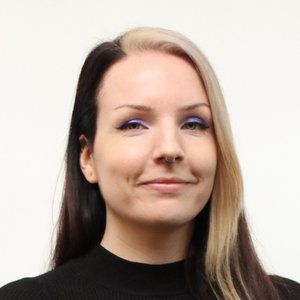
Caitlin de Rooij
- Internet
- https://www.caitlinderooij.com
- caitlin-de-rooij
-
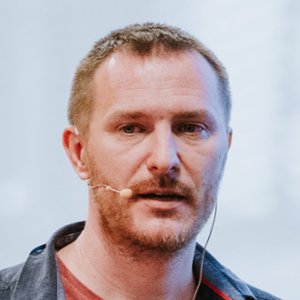
Łukasz Nowak
- łukasz-nowak-533844101
-
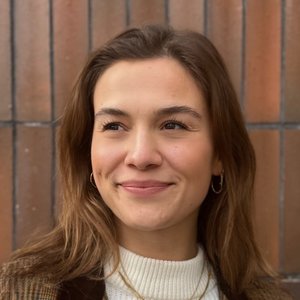
Nathalie Merdan
-
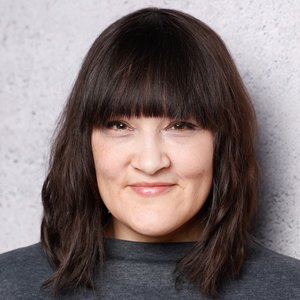
Leonie Theissen
Designing brands and communication for an inclusive world
- leonie-theissen-699786189
-
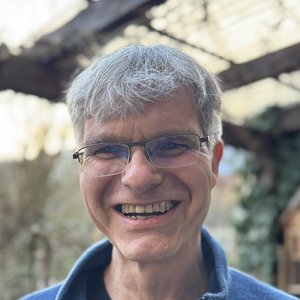
Detlef Girke
Accessibility Consultant
- Internet
- https://bitvconsult.de
-
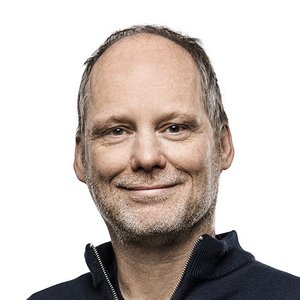
Oliver Vaupel
Designer and Web Accessibility Specialist
- Internet
- https://ovau.de
- ovaudesign
-
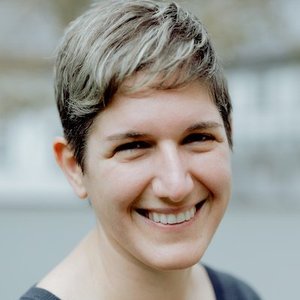
Nasia Makrygianni
- makrygianni
-
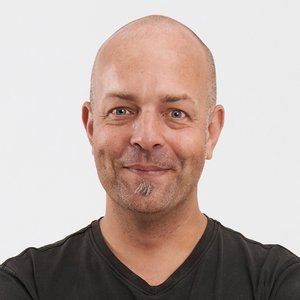
Joschi Kuphal
Designer, programmer, lecturer, event organiser and restless tinkerer from Nuremberg
- Internet
- https://jkphl.is
- Mastodon
- @jkphl@mastodon.social
- joschikuphal
-
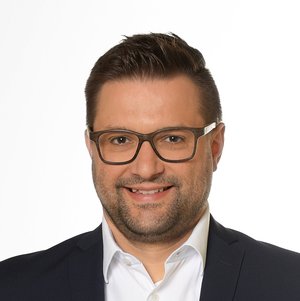
Tobias Aubele
Professor in the field of usability, human-computer interaction and accessibility, head of the e-commerce degree programme and consultant
- Internet
- https://fiw.thws.de
- tobias-aubele
Location
The Summit will be held primarily, if not exclusively, on the campus of the Technical University of Applied Sciences Würzburg-Schweinfurt (THWS), where Joschi also teaches. As a state university, the complex should be completely barrier-free.
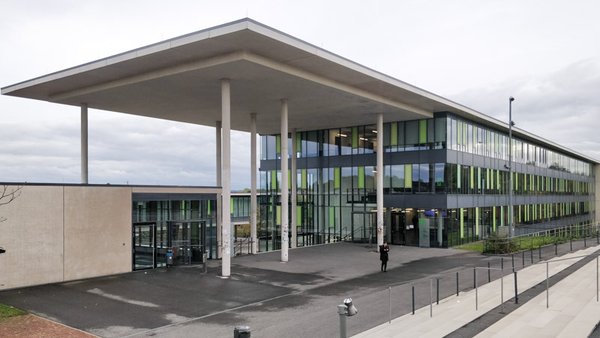
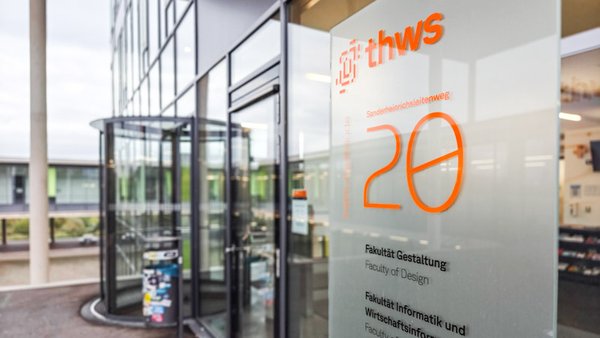
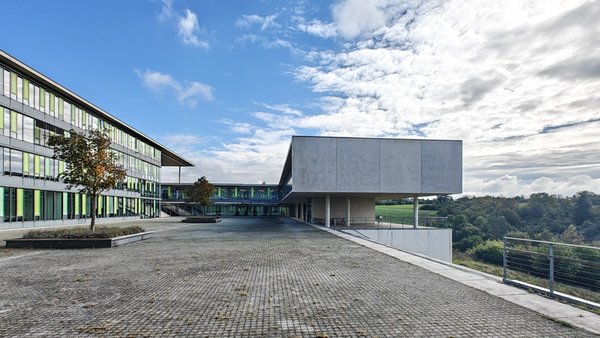
Next steps
We will provide you with more details as soon as possible over the next few weeks, so please keep an eye on this website, our Slack team, and our Mastodon account. As always, tickets will be available at a non-commercial cost level, and we will again have a scholarship program.
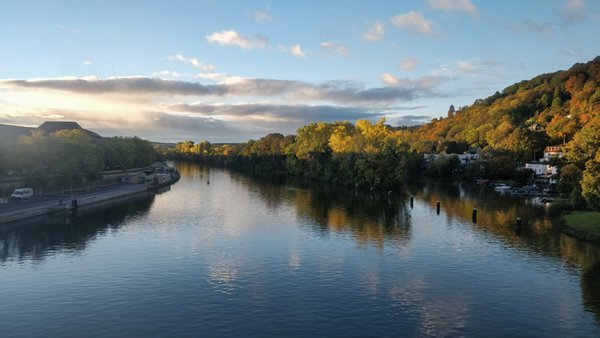
How do I stay updated?
Slack Team
You can either join the #announcements channel in our Accessibility Club Slack Team. We use the Slack team for organisational tasks as well as community stuff. If you'd like to broaden its purpose and make it an even more open platform, we'd love to hear your ideas!
Hosts
-

Joschi Kuphal
Designer, programmer, lecturer, event organiser and restless tinkerer from Nuremberg
Joschi is working on the web since the mid 90s and founded the web agency tollwerk in 2000, which he continues to shape to this day. He has shared leadership of tollwerk with his team in an equal, cooperative and self-organizing way since 2022. He launched a couple of event series like the border:none and Material conferences, the Accessibility Club and the CoderDojo Nürnberg. He's occasionally running IndieWebCamps, hosting the monthly accessibility webcast technica11y and used to be one of the driving forces behind the Nürnberg Digital Festival.
- Internet
- https://jkphl.is
- Mastodon
- @jkphl@mastodon.social
- joschikuphal
- Github
- @jkphl
-

Tobias Aubele
Professor in the field of usability, human-computer interaction and accessibility, head of the e-commerce degree programme and consultant
Tobias is a professor of e-commerce at the Technical University Würzburg-Schweinfurt (THWS) and a consultant. Before joining the university, he worked for more than 15 years in an international multi-channel company in various management positions, most recently as Head of E-Commerce, including with the babywalz brand. He heads the laboratory for conversion optimisation and user experience at the Faculty of Computer Science and Business Informatics.
- Internet
- https://fiw.thws.de
- tobias-aubele
-
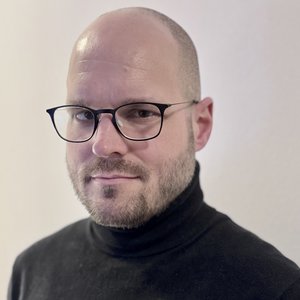
Falko Melz
Accessibility consultant, strategist, and advocate for inclusive digital transformation
Falko has 15 years of experience in IT, driving digital transformation in gaming, banking, and the public sector. Despite a visual impairment, he has led large-scale IT projects and specialized in digital accessibility. Now, as an independent consultant, he helps organizations develop strategies that go beyond compliance, demonstrating how digital inclusion can be a key driver of innovation and usability.
- falko-melz-38574124
-
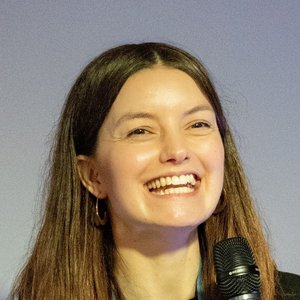
Josefine Schaefer
Accessibility Advocate & Engineer, Cat mom & Dance teacher
Josefine took the scenic route into the tech industry: she used to work in Marketing and Communication before entering a bootcamp and becoming a frontend engineer. These days she is a Google Developer Expert, Women Techmakers ambassador and has a monthly stream with two friends called GirlCode Coffee Chat. She cares deeply about making tech communities more inclusive and opening space to as many as possible. She is a certified pole dance & aerial silks instructor and spends a lot of her time upside down.
- @JsfnSchfr
- j-schaefer
- Github
- @josefineschaefer